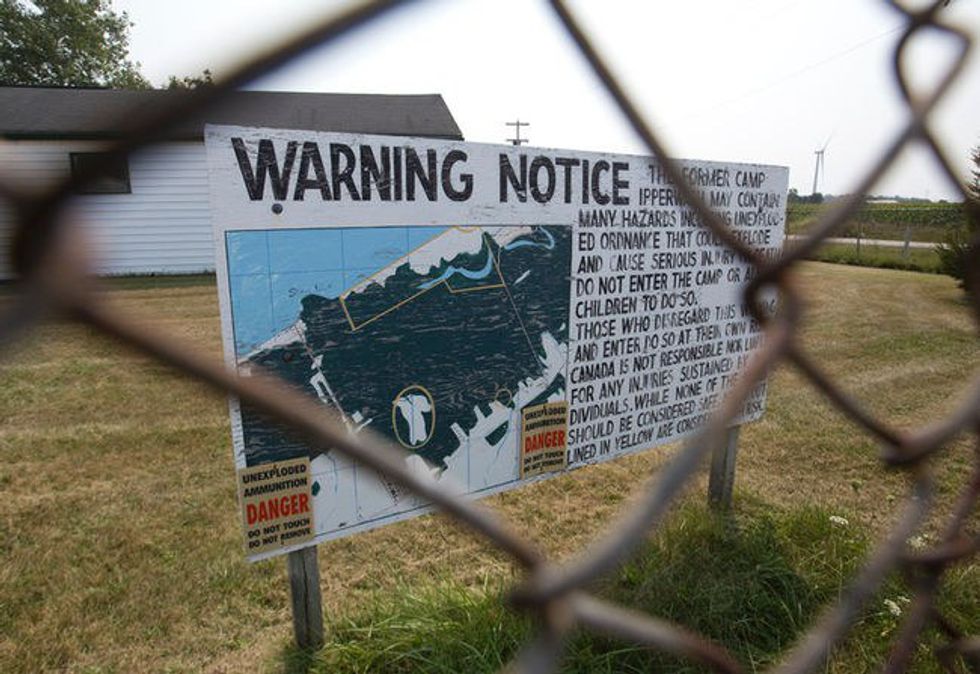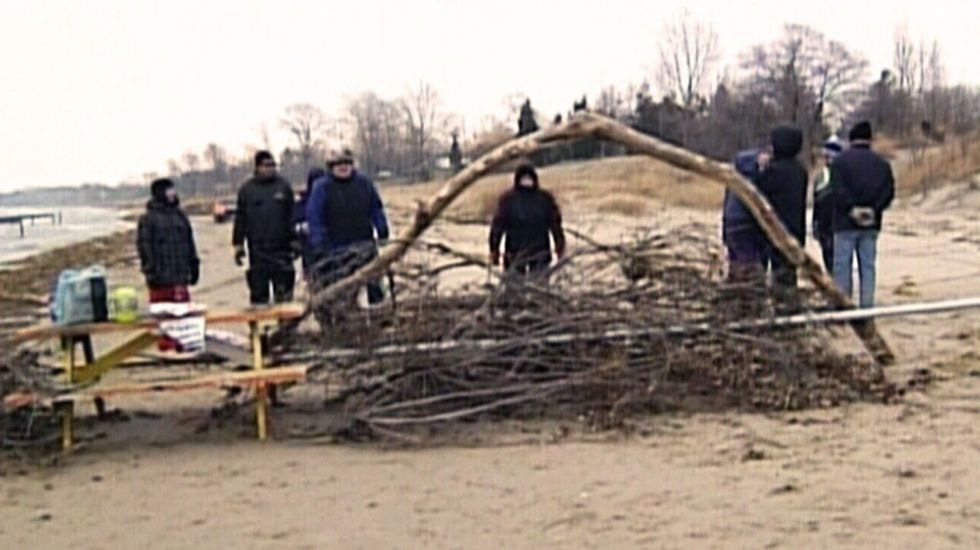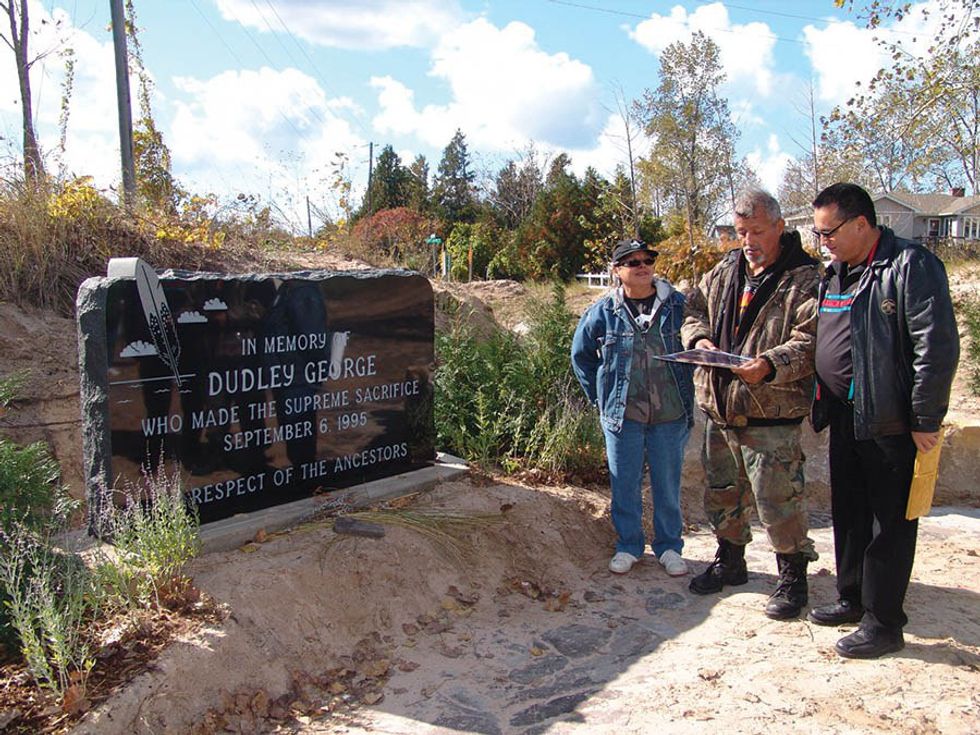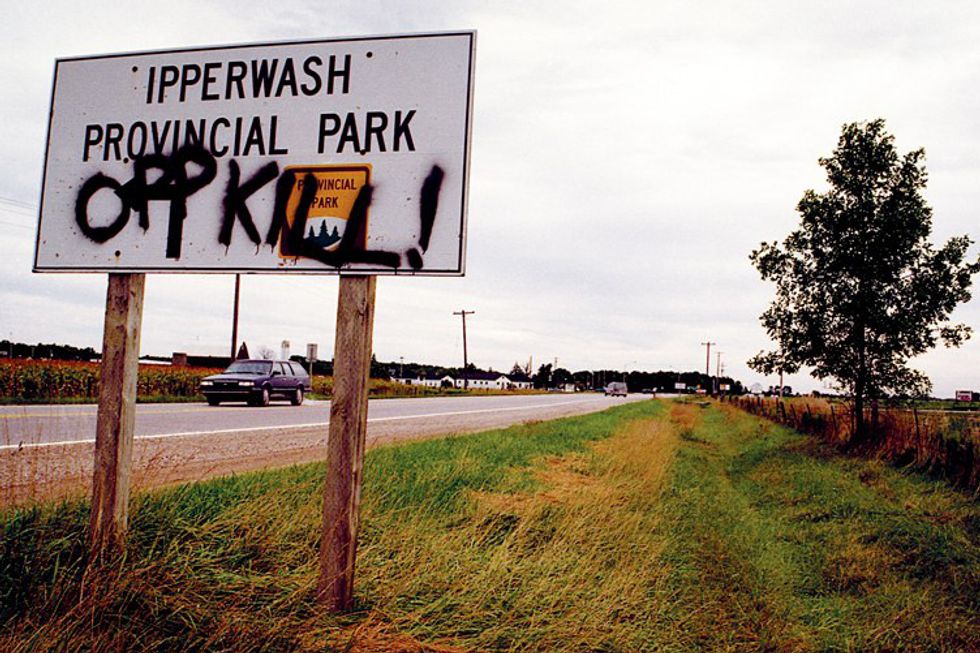Throughout history, First Nations people have had their land seized by colonization and government systems. In Canada, there have been multiple events where sacred land was taken away from aboriginal people for the government to use, similar to what we are seeing in the United States today with the North Dakota Access Pipeline. The land taken from the Chippewa of Kettle and Stoney Point First Nation people is one of the events. The Ipperwash Crisis took place as a two-day occupation in September 1995, where native activist Anthony “Dudley” George was shoot and killed by Ontario Providence Police.
The land dispute started in 1941 during World War II, when the Canadian government made an offer to the Chippewa of Kettle and Stoney Point First Nation tribes. The government offered a sum of money in exchange for the land where they intended to build the Ipperwash military camp. This offer was rejected by these First Nations communities because of the strong spiritual and cultural significance of the land, which contained a cemetery with the ancestors of these Chippewa of Kettle and Stoney Point people.
Recommended for you
Even though the offer was rejected by the tribes, the Canadian government was able to expropriate the land under the War Measures Act in 1941. At the time, the local tribes were given $15 for each acre of land taken from them, along with the promise that the land would be returned after the war. Over a dozen families and their houses were forced to relocate, and the Ipperwash military camp was built.
After the war was over, the land that was promised to go back to the tribes it was taken from remained under control of the Canadian government. Part of the land was converted into the Ipperwash Providence Park, with the military base still remaining on the land. During the 1990s, after much pressure from the tribes to return the land, the government was still using Camp Ipperwash during the summer for cadet training.
In September of 1993, members of the Chippewa of Kettle and Stoney Point First Nations tribe walked 474 miles from Stoney Point to Ottawa to put pressure on the government to keep their promises and return the land to the First Nations people.
A year later, on September 4, 1995, members and activists of the Chippewa of Kettle and Stoney Point decided to occupy the land that was promised to be returned. Around 30 women, men, and children from the tribes were holding their ground at Camp Ipperwash. One of these people was native activist Dudley George, who had been involved in the fight for this land since 1993.
Mike Harris, Premier of Ontario at the time, sent in Ontario Providence Police to clear out the occupation as soon as possible. Tensions started to raise between the OPP and the First Nations people occupying the land, with minor confrontations beginning after September 4th.
Tensions rose throughout the next few days, and on the night of September 6th, an OPP officer fired his weapon and shot George, claiming later that he had a weapon. After the shooting, George’s family tried to take him to the hospital but were pulled over and arrested, unable to get him there in time.
George died on the morning of September 7, 1995, being the first aboriginal person to be killed in a land rights dispute in Canada in the 20th century, and marking the end of the Ipperwash Crisis.
Sgt. Kenneth Deane was the OPP officer who shot and killed George that night, and it wasn’t until 1997 that Deane was charged with criminal negligence causing death. After the charge, Deane resigned from the force and served no jail time for the life he took. He was killed in a car crash in 2007.
From 2003 to 2006, there was a public inquiry about the events that made up the Ipperwash Crisis, and more investigation was put into the shooting of George and the orders given to OPP by Mike Harris. According to surveillance tapes, the OPP officers were making racist remarks to the First Nations people occupying the land before the shooting occurred. It was also said that Mike Harris was quoted saying “I want the f*cking Indians out of the park” before ordering OPP to break up the occupation.
After the public became more involved in the investigation of Ipperwash, the Ontario Ministry of Aboriginal Affairs was created to stand for the rights of Canada's First Nations. In December 2007, the Canadian government agreed to give land back to the Chippewa of Kettle and Stoney Point First Nations people.
Although the government agreed yet again to give back the
land, it was not returned until September 2015—twenty years after George was killed.
This deal with the Canadian government resulted in most of the land being
returned, with the exception of Ipperwash Provincial Park. Along with the
land, the tribes were given 95 million dollars, which went toward cleaning up
the lands and to members and the descendants of the land before it was
expropriated.
The loss of Dudley George during the Ipperwash Crisis should be used to learn about the mistakes of unnecessary force used on a First Nations individual by law enforcement. Seeing extreme force used on peaceful protesters at Standing Rock, where the North Dakota Access Pipeline is being built, is another example of the mistreatment of First Nations people. Let us not make similar mistakes in the United States as were made in 1995 with the Ipperwash Crisis.






















